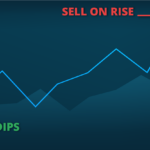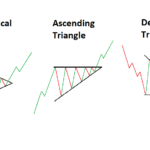What is the Nasdaq?
The National Association of Securities Dealers Automated Quotations (NASDAQ) is the world’s second-largest stock exchange by marketA location or entity where people and entities can negotiate and trade assets of value. cap after the NYSE and the first to trade online.
It is also the author of the NASDAQ composite – a stock market index of securities offered on the NASDAQ exchange.
The main focus of the NASDAQ includes stocks related to the research, development or distribution of technology-centred goods and services.
This segment contains companies involved with the business of electronics, software, computers or services linked to information technology.
Hi-Tech, Hi-Pressure
The technology offers an extensive assortment of products and services for both customers and other businesses. Consumer goods, such as computers, stereos, and TVs are frequently, upgraded, offering the newest technology to consumers and users.
Many businesses obtain services from software systems, which permits them to make strategic commercial decisions.
Stocks such as Facebook shares and Google shares are in this sector.
The words ‘technology stocks’ evoke bad memories for many investors who lived through the excitement of the technology growth of the late 1990s to the extensive misery through the ensuing technology meltdown during the years 2000 and 2002 – the dot-com bubble.
The bubble burst on April 14th 2000, with the NASDAQ losing 25% in a single day – a result of a ruling 10 days earlier that Microsoft had been guilty of monopolizing practices, pushing stocks down by 15% in a day, which pressured the NASDAQ down 8%.
By November, internet stocks alone had lost 75%, and Merrill Lynch and Citigroup were fined for having misled their clients.
Tech Trading Today
Technology represents today so fundamental a chunk of all facets of our everyday lives that the division is almost certain to have other days of glory.
For all that, there are many investors who, still suspicious of technology stocks as well as mutual funds that have a high percentage of technology stocks from this sector, are worried that the bottom might fall out of the market again.
Interestingly enough nearly all technology funds consist of equities-only funds with the vast majority of them falling into the category of growth funds.
These funds invest in an extensive variety of technology connected companies, as well as anything related to the research, development, and use of computers, software, communications, the Internet, semiconductors or any other aspect of technology.
Most technology funds are inclined to use the stocks of companies that are in one of two groupings. The first category consists of larger, more reputable technology companies that have solid cash flows and considerable market share.
The second category comprises companies that have advanced new concepts or copyrights that analysts trust will provide a noteworthy probability for growth. The volatilityThe measure of fluctuation in an asset’s value from the mean. Volatility can be historical (over a... intrinsic to this segment often results in extraordinary portfolio turnoverThe amount of money received by a company over a period, or the rate at which employees are replaced..., which is typically larger than that of stocks in other sectors.
To Tech or Not to Tech?
The technology sector is a comparatively new area of the market and came into its own in the 1990s. Technology stocks had their heyday in the late 1990s, when many of them secured huge gains in the years 1996 to 1999, and then flared out dramatically in the subsequent years.
Some stocks posted cosmological losses, while some technology funds, as well as posting losses, became entangled in accounting humiliations as the market declined.
Technology stocks have a tendency to be volatile, and their price action has historically been somewhat divergent to the general market.
When the wider market surges, the technology stocks will frequently appreciate severely; in bear markets the same thing occurs.
And so, investing in technology stocks is not an easy ride. Prone to high volatility and often moving against the market in general, an investor in these stocks wants growth and not income.
In short, technology stocks are not for the conservative inclined.











